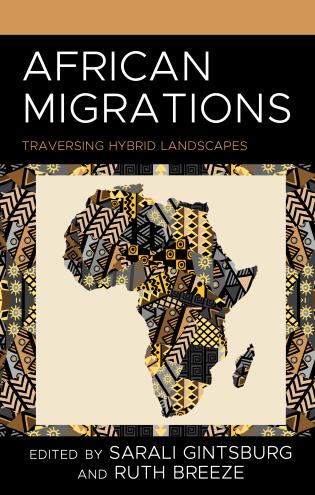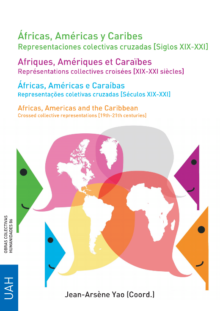Afrodescendancy

From Angola to Portugal: Narrating Migration, Memory and Identity in Djaimilia Pereira de Almeida’s Work
Abstract:
Based on the teoretichal perspetives of Lusophone Postcolonial Studies, in dialogue with other analytic tools from Feminist Studies, this chapter aims to explore the topics of migration, memory and identity through the close reading of two works of fiction by the Portuguese writer of African descent Djaimilia Pereira de Almeida (1982), who was born in Angola and grew up in Portugal. In the autofiction That Hair (Tin House, 2020; originally published in Portuguese as Esse Cabelo, 2015), as well as in the novel Lisbon, Luanda, Paradise (Lisboa, Luanda, Paraíso, 2018), the main characters move from Angola to Portugal for personal or family reasons and seek to redefine their identities. They give voice to memories and narratives that involve the relationships between the colonial past and the building of contemporary postcolonial identities. In particular, the chapter analyses the representation of both the place of orign and arrival to portray the complex socio-cultural and migratory identity landscapes that emerged during Portuguese colonialism, as well as following the decolonization in Lusophone Africa (1975). In this regard, incluiding also a brief reading of the most recent novel by Almeida, Maremoto (2018), the chapter pays special attention to the perceptions and experiences of the city of Lisbon by narrators and protagonists who are immigrants, in order to reflect on the contemporary configurations of a postcolonial city on the periphery of Europe.
Citation:
Falconi, Jessica (2024) “From Angola to Portugal: Narrating Migration, Memory and Identity in Djaimilia Pereira de Almeida’s Work” in S. Gintsburg & R. Breeze (eds) Afriacan Migration: Traversing Hybrid Landscapes. Lanham: Lexington Books, p. 15-35.
https://rowman.com/ISBN/9781666938708/African-Migrations-Traversing-Hybrid-Landscapes

As (im) pertinências do método. Metodologia participativa e o estudo sobre a Afrodescendência em Portugal
Abstract:
The announcement of the Decade of African Descendants (2015-2024) by the UN, drew attention to the presence of African descendants in Europe, including in Portugal, as part of the contemporary social configuration of the continent. However, the focus on these people has been sustained, above all, in theories and representations of subalternity and exclusion that do not recognize them as new political subjects in a Europe that is no longer black and white. These politically hybrid subjects, in the historical and cultural sense, bring theoretical-epistemological and methodological challenges to the social sciences, since their visions, paradigms and ways of living escape the traditional lenses of the approaches that associate them with immigrants or refugees. We propose that in approaching the subject of Afrodescendence, method is central and determinant of the outcomes, ethical function and meaning of social research on emerging contemporary subjects. We argue in favour of participatory methodology, reflecting on its pertinence in a context where the people in the researched situation are critical subjects in their fields of intervention/action who reject being reduced to mere objects of study. We analyse the processes of negotiation in the field concluding on the contribution of this project to the dialogue between academics and the afrodescendant collectives. As (im)pertinências do método. Metodologia participativa e o estudo sobre a Afrodescendência em Portugal is inserted in the debate on the democratization of knowledge, sustained, in particular, by critical perspectives that are based on studies on emerging contemporary subjects.
Quotation:
Évora, Iolanda. “As (im)pertinências do método. Metodologia participativa e o estudo sobre a Afrodescendência em Portugal”, In: Yao, Jean-Arséne, Victorien Lavou Zoungbo et Luis Mancha San Esteban, eds. Forthcoming. Representations collectives croisées: Afriques, Amériques et Caraibes. Xix-xxi siècles. III GRELAT. Actas do Colóquio. Madrid: UAH Editora, 167-176. ISBN:978-84-18254-12-3.





